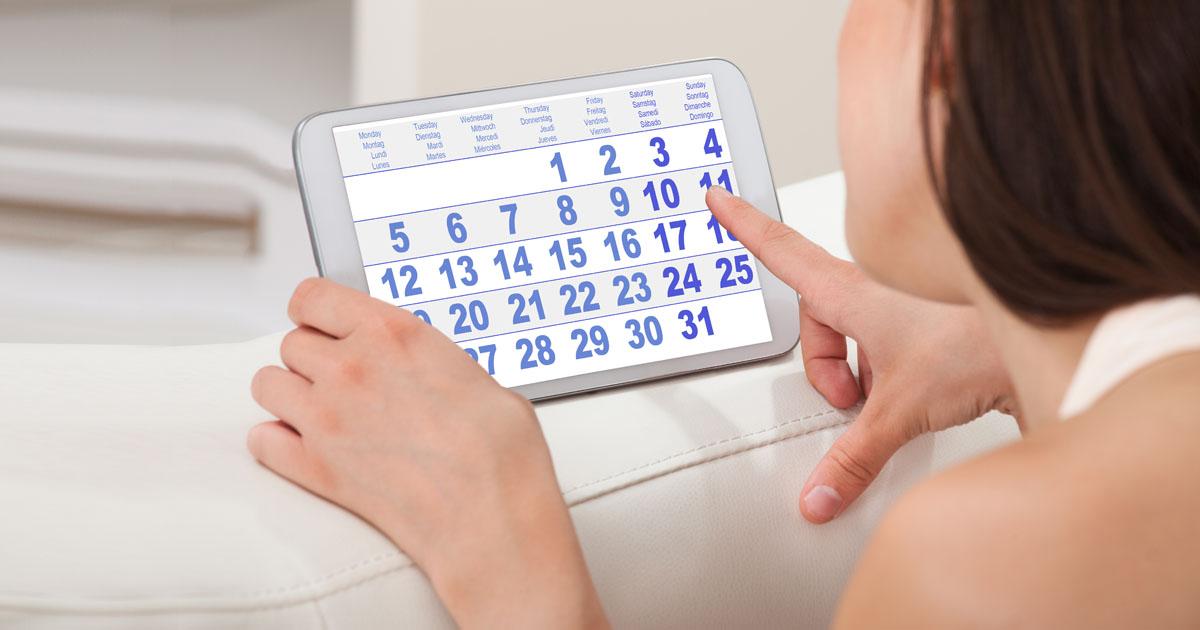Menstrual Cycle Exposed: What Your Cycle Can Tell You About Your Fertility

When I first started trying to conceive, I was 41 years old and had spent most of my life trying to avoid getting pregnant. I’m probably like a lot of women in that regard.
Once I decided I wanted to be a mom, I stopped taking birth control and figured I’d be pregnant in a few months. I’m probably like a lot of women in that regard too.
I started reading about the menstrual cycle and learned that despite living with my body for 41 years I knew very little about it. Sadly, many women are probably in this boat too.
Until I started trying to get pregnant, the only thing I knew about my cycle was how long it was. I’m embarrassed to say that now.
I’ve said before that taking charge of my fertility was key to my success in getting pregnant over 40. The very first thing I did to take charge of my fertility was to educate myself. I read everything I could get my hands on about women’s health, fertility and reproduction.
Once I learned about the amazing processes going on in my body I was truly in awe of myself and of my body!
Here are some of the things that I learned:
The term menstrual cycle is about so much more than your period.
I’d always assumed that my “menstrual cycle” referred to my period, the act of menstruation. It’s actually so much more than this. Your menstrual cycle is actually the entire time from Day 1 of your period to Day 1 of the next period, and everything that happens in between. Those things that happen in between can have a profound effect on your fertility.
The menstrual cycle is divided into 3 separate and distinct phases – all in just a month.
The follicular phase, the first part of the cycle, is when your eggs are maturing in your ovaries, in little sacs called follicles. Estrogen (estradiol) is the main hormone dominating this phase.
Ovulation, the release of your egg from the ovaries, is the next phase. This is the defining event of your cycle. After the eggs mature, luteinizing hormone is secreted which signals them to release. This is your most fertile time.
The luteal phase is the time from ovulation to the beginning of the next period. It’s usually a constant 13-14 days. It’s impossible to get pregnant during this phase of the cycle.
If conception occurred, your body prepares for a pregnancy during the luteal phase. Your fertilized egg implants in the lining of the uterus. The dominant hormone during this phase is progesterone. If conception didn’t occur, the uterine lining sheds. The shedded material is your menses.
Yes, this frenzy of activity and dance of hormones all happens in 21-35 days’ time – every single month!
Cycles vary from person to person, and even in the same person from month to month.
No two people have identical cycles. Even if your own individual cycles are usually consistent, they can be longer or shorter than usual from time to time. The main variant is the length of the follicular phase; it’s not a constant.
I’ve written before about how delicate ovulation can be and reasons it can be delayed. Illness, stress, travel, major changes to diet or exercise and even the weather can all affect ovulation.
28 days isn’t necessarily 28 days.
I grew up being taught that a woman’s regular cycle is 28 days. You might have been taught this too. The 28-day cycle is a myth. Ovulation doesn’t always happen at the same time every month. It’s unique to each individual woman.
Two women with 28-day cycles may actually have very different things going on in their bodies. One woman may ovulate on day 14 with a standard 14-day luteal phase. The other woman may ovulate on day 17 (which is normal) with an 11-day luteal phase (which may not necessarily be normal).
The menstrual cycle can actually range anywhere from 21-35 days, and this is normal.
That’s why it’s important to do more than simply count the days, but dig deeper. This way you’ll really know what’s going on with your body. If something isn’t normal you’re more apt to find out more quickly that way.
Here are some things your cycles may be telling you about your fertility and when to seek help:
Cycles that are too short or too long could indicate compromised fertility.
Cycles that are shorter than 21 days could mean that the eggs don’t have enough time to mature in the ovaries. This could signify that egg supply is decreasing, as hormones are working harder to stimulate the ovaries, resulting in earlier ovulation.
It could also mean your luteal phase is too short, and a fertilized embryo doesn’t have enough time to implant in the uterus.
Very long cycles are usually an indicator that ovulation isn’t regular. Hormonal imbalances are usually the cause of this. Issues with irregular ovulation are the leading cause of female infertility.
Abnormal menstruation may also signify fertility issues.
Periods that are very heavy (full flow longer than 7 days) could mean ovulation is irregular or that there’s an issue with the uterine lining. Very light periods (less than 2 days of bleeding, bleeding that’s more like spotting, or brown blood) can be attributed to stress, poor nutrition, an autoimmune disorder, or the onset of perimenopause.
If you regularly miss periods altogether, it usually means that ovulation isn’t occurring and conception would be very difficult. This could be due to any number of factors and is something to bring up with your doctor.
The good news is that you can still conceive even if your cycles aren’t regular. Irregular cycles are treatable, and your doctor will work with you to develop a sensible treatment plan for your own unique situation.
To your fertility,
Stephanie



